LASTER TAN, Managing Director of APBABC
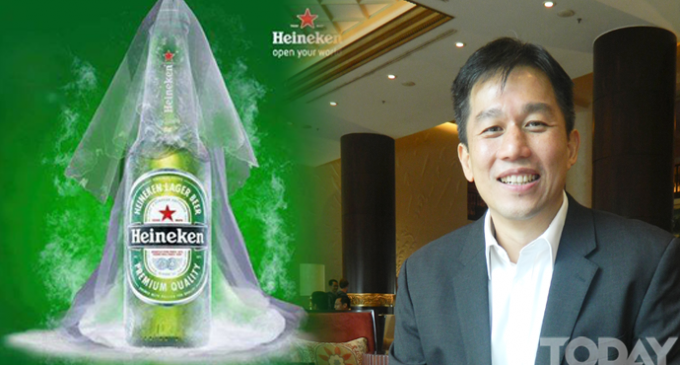
Heineken, the Dutch Beer Company, has entered into a joint venture agreement with privately-owned Alliance Brewery Company Ltd (ABC) t o brew and sell HEINEKEN beers in Myanmar starting with an investment amount of US$ 60 million. The new joint venture company, APBABC Limited, is building a new brewery in Hmawbi Township, Yangon Division. The following is an interview with Lester Tan, Managing Director of APBABC, who talked about his experiences and the market strategy planned for Heineken in the country.
Past Experiences
After I finished my studies, I worked for about 6 years in Singapore. Later, I changed over to a Pharmaceutical Industry in Singapore. But I stayed at the job only for a short time. I moved from there to Heineken. Now my service with Heineken has been 21 years. Before I took up my current post here in Myanmar, I worked for Heineken as well as for Joint Venture Companies with Heineken such as MCS-APB LLC, Asia Pacific Breweries Singapore, Myanmar Brewery Limited and Mongolian Beverages.
How did you happen to work for Heineken? What responsibilities have you assumed? What do you recall most?
I have always wanted to work for Heineken so no big decision was needed to join the company. I believed that this company would bring success to my career. I came to realize that my choice was a correct one. Now I can say I have been pivotal in bringing about part of the company’s success.
What I recall most is, when I first joined the company, it had no internet facilities. Therefore, we had to rely on existing data that the company had compiled.
My first duty was in the Marketing sector. Later I took part in Business Development as well as Regional Marketing. Prior to introducing Heineken Beer in Myanmar, I introduced it in the Mongolian market. Although market conditions between Mongolia and Myanmar vary, each market poses its own challenges. Mongolia, compared to Myanmar, has less population and the beer market is small. Heineken also introduced Tiger there as a locally brewed beer.
Market strategy of Heineken
In introducing Heineken beer into Myanmar, I applied the same strategy used in Mongolia. But market demand in each country varies. And in introducing Heineken beer to a new region, we usually introduce a new beer with a taste attuned to local customers. Therefore, as well as introducing the premium Heineken brand to Myanmar, we are introducing a local brand called Regal Seven which has been created for the Myanmar market. So we now have 2 brands with different packaging. The approval process for Heineken is stringent and every month we need to send 3 samples to Amsterdam, Holland for testing. Only after achieving the desired quality, we start distributing the beer in the market.
Challenges faced in the Myanmar market
As I have mentioned, all markets pose challen ges. Before we venture into a new market, we try to figure out how to carry out the marketing and distribution and how best to use the existing transportation. That is why Heineken has entered into a joint venture agreement with Alliance Brewery Company (ABC) which is familiar with the local market.
From where are the raw materials sourced to brew beer in Myanmar?
Heineken hasn’t specified from where the raw materials should be sourced. Regardless of the region from where the raw materials originate, if they meet the quality standard, we use them. That is why we work together with local suppliers and most of the raw materials are now bought locally. The main raw material for the locally brewed Regal Seven is rice so we share our technology with local rice farmers to improve the quality of the product.
From the very beginning when we started our business in Myanmar, our goal has been to go as local as we can. The more our brand succeeds, the more local raw materials will be used. For the occasion of the launching of Heineken beer, we could have hired some successful musicians from Singapore and Thai-land, but since there are talented musicians in Myanmar, I chose to hire them. We are investing our business in Myanmar so we must return the favour to Myanmar. Using raw materials from Myanmar and hiring musicians from Myanmar are ways of supporting the local economy.
The standards and norms stipulated by Heineken are not ones that are overly difficult to attain. The norms are specified to uphold the product standard and therefore technical knowhow is imparted to the local suppliers to facilitate them to produce raw materials which meet our standards.
Up to what extent has Heineken penetrated the international market? Do you have plans to distribute the locally brewed Regal Seven to foreign markets like you have done with Tiger Beer?
Presently, we have obtained the license to distribute Heineken and Regal Seven in the Myanmar market. Since Heineken is a success-ful brand, it is available almost everywhere in the world. We have the presence of our company in 70 countries and there are 165 breweries to produce the beer. Heineken is the largest beer producing company in Europe and according to trade volume, it is the third largest beer produc-ing company in the world. But very soon, the world’s first and second largest beer producing companies are going to join together and therefore Heineken will probably become the world’s second. Regarding market penetration, Heineken is available in about 200 countries around the world including 26 Asian countries.
As for Regal Seven, we will first try to make it successful in Myanmar. After that, we will see if it should be marketed to other countries. Depending on customers’ preferences, we intend to produce other new brands besides Regal Seven.
Have you specified the number of years you need to make your brand successful in the market?
All businessmen wish their brand to make its mark throughout the entire market. We have the intention to expand our brand in the Myanmar market. With efficient distribution in mind, we have set up a total of 7 branch stations, 3 in Southern Myanmar (Lower Myanmar) and 4 in Northern Myanmar (Middle and Upper Myanmar). These branch stations are presently set up only in major towns. We will gradually expand to more stations around the country.
To distribute to every part of Myanmar, we cannot do it alone. We need local distributors. That is why at the opening ceremony of Heine-ken beer, we celebrated together with Wholesale distributors. We had chosen them one year ahead of the introduction of Heineken beer to Myanmar. Our success depends a lot on these distributors. They have faith in Heineken so I’m convinced Heineken will be successful in Myanmar. According to our market strategy, our success in the Myanmar market depends mostly on the Wholesalers.
Do you have plans to increase the number of beer breweries in Myanmar?
Presently, we only have the license (permit) to set up a brewery in Hmawbi so setting up more breweries in other cities is not feasible yet. But we will be trying to improve the sale volume and we expect the brewery to produce three times as much to meet the demand. Our main target is to increase the production volume and gain more market shares. If more market shares are cornered and the demand exceeds the volume produced, then we will set up another brewery.
Translated by Mra Hninzi
./wp-content/uploads/2018/10/Emirate-Online-TDY.png)







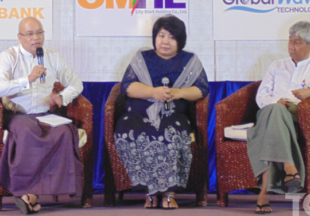
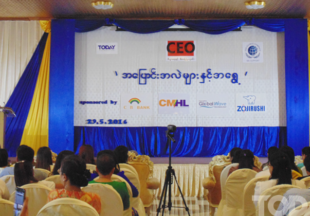
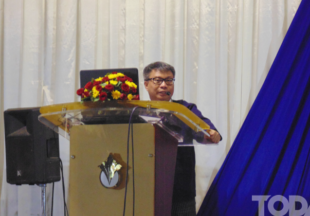
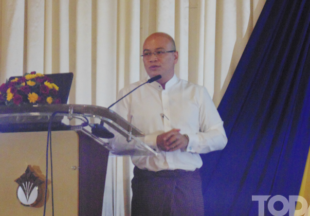
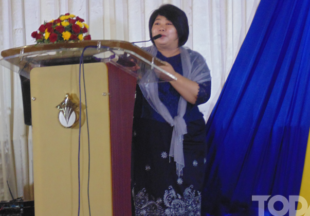
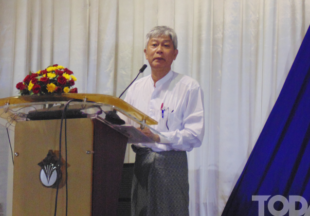
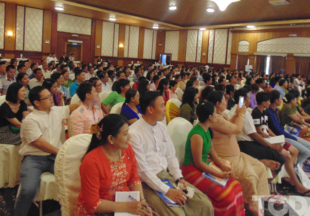
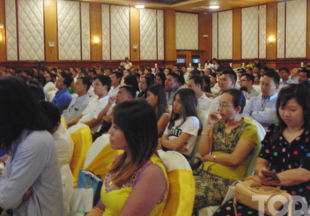
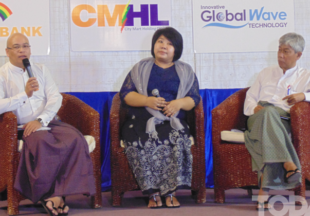
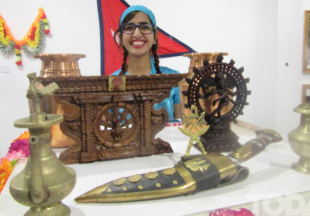
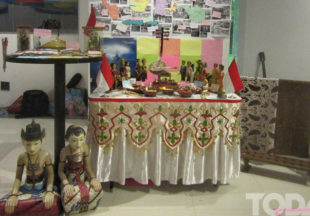
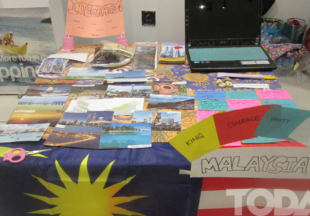
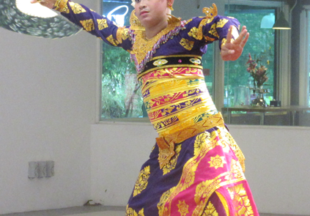

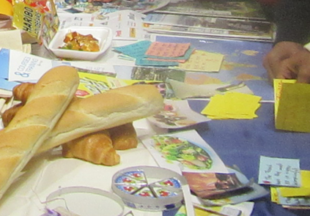

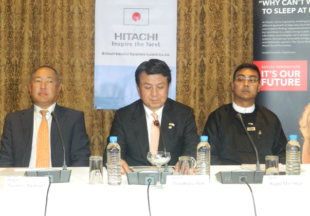
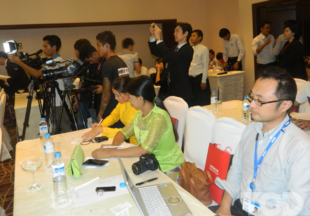
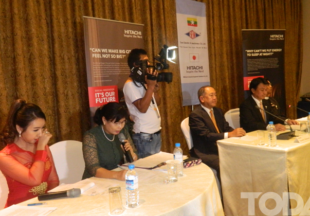





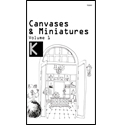



There are no comments at the moment, do you want to add one?
Write a comment